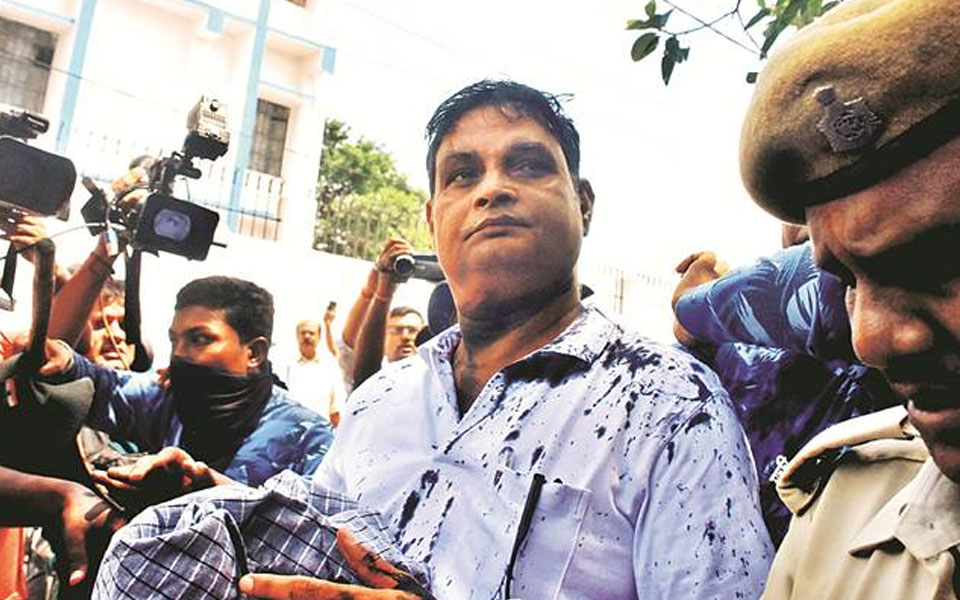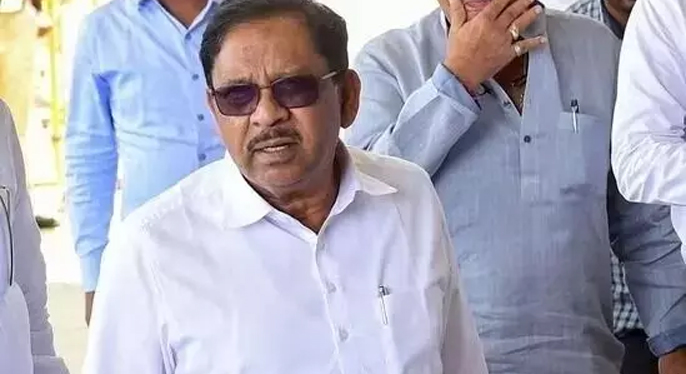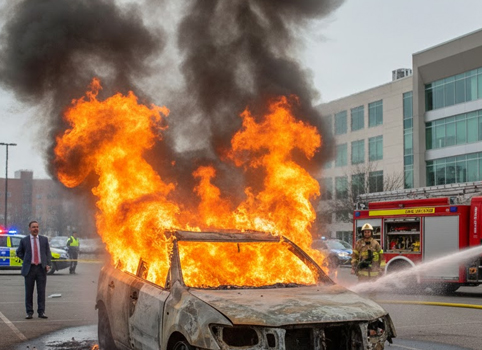New Delhi, Oct 25 : The Supreme Court Thursday termed as "horrible" and "scary" details placed before it about the investigation into the case of Muzaffarpur shelter home where several girls were allegedly raped and sexually abused.
A bench headed by Justice Madan B Lokur perused the status report filed by the CBI and said "what is this going on? This is horrible".
The apex court also took note of the allegations referred by CBI against shelter home owner Brajesh Thakur and issued notice to him to explain why he should not be transferred to a jail outside the state.
The CBI in its report had alleged that Thakur is an influential person and a mobile phone was recovered from him inside the jail where he is currently lodged under judicial custody.
The bench also comprising Justices S Abdul Nazeer and Deepak Gupta noted that Thakur is an influential person
The top court also asked Bihar and he CBI to explain the delay in tracing the whereabouts of ex-minister Manju Verma's husband Chandrashekhar Verma.
It had asked the Bihar Police to investigate the former minister and her husband in connection with the recovery of huge quantity of ammunition from them.
Verma had to resign as the minister of Social Welfare from the Bihar government in the wake of the Muzzafarpur shelter home sexual abuse case.
The bench also made it clear that the CBI team investigating the case should not be changed and posted the matter for hearing on October 30.
The apex court had on September 18 stayed a Patna High Court order to set up a fresh CBI team to probe the case, saying such a move would not only be detrimental to the ongoing investigation but also to victims.
It had said that there was no reason now to change the existing investigating team, which was set up by the CBI Director, and directed the investigation to continue under the same team which was set up on July 30.
Earlier, the bench had said that the investigation seems to be going in the right direction and had also asked the Income Tax Department to look into assets of the NGO which was running the shelter home and its owner Thakur.
The apex court had also noted that no allegations were made against the team probing the case with regard to the manner in which the investigation was being conducted.
Over 30 girls were allegedly raped at the shelter home.The alleged sexual exploitation of the girls was first highlighted in an audit report submitted by the Tata Institute of Social Sciences (TISS) to the state's social welfare department.
In all, the sexual abuse of 34 of the 42 inmates was confirmed in their medical examination. The TISS audit report had said that many girls at the shelter home had complained of sexual abuse.
An FIR was lodged against 11 people, including Thakur, on May 31. The probe was later taken over by the CBI.
A special investigation team was formed to probe the complaints. The NGO running the shelter home in Muzaffarpur was blacklisted and the girls were shifted to shelter homes in Patna and Madhubani. Women staff members of the shelter home and Thakur were among those who were arrested by the police in connection with the case.
The apex court had earlier taken cognizance of the matter after it received a letter from one Ranvijay Kumar, who had expressed concern that the alleged victims were subjected to media interviews.
Let the Truth be known. If you read VB and like VB, please be a VB Supporter and Help us deliver the Truth to one and all.
Kolkata(PTI): Leader of Opposition in West Bengal assembly, Suvendu Adhikari, on Saturday wrote to Governor C V Ananda Bose, seeking an independent judicial inquiry into “administrative incompetence” and “public humiliation of citizens”at the Salt Lake Stadium here during an event featuring football legend Lionel Messi.
In his letter, Adhikari alleged that the stadium, built with public funds, was converted into a “private durbar” for political elites, resulting in humiliation and harassment of spectators who had purchased tickets.
"I write this communication with a profound sense of anguish, constitutional alarm, and moral urgency. What unfolded at the Yuva Bharati Krirangan was not merely an episode of administrative incompetence, it was a public humiliation of citizens, a grotesque exhibition of unrestrained political privilege, and a direct assault on the rule of law in the presence of thousands of witnesses," Adhikari asserted.
He claimed that football fans were denied basic amenities and dignified viewing due to unchecked VIP presence, obstruction of sightlines, and arbitrary restrictions.
Chaos unfolded at the Salt Lake Stadium on Saturday, after spectators resorted to vandalism on failing to catch a glimpse of Messi, alleging gross mismanagement by the organisers and obstruction of views by VIPs.
Police arrested the event’s prime organiser, Satadru Datta, while Chief Minister Mamata Banerjee announced the constitution of a high-level inquiry committee to probe the incident.
Adhikari, in his letter, held the sports department, police authorities and the minister-in-charge of sports and youth affairs responsible, alleging that the situation was “enabled, if not orchestrated”, by the state administration.
He claimed that the conduct of the authorities reflected indifference to public accountability and misuse of power.
The senior BJP leader also took exception to the inquiry committee announced by the chief minister, contending that it lacked independence and credibility.
Adhikari said the panel is headed by Justice (Retd) Asim Ray, who currently holds a statutory post under the administrative control of the state government, and includes senior bureaucrats whose actions are under scrutiny.
"This committee is structurally compromised, legally infirm, and morally indefensible," he said in the letter to the governor.
Adhikari urged Bose to exercise his constitutional authority to order the formation of a truly independent inquiry committee.
He proposed that the committee be headed by a sitting judge of the Calcutta High Court, and assisted by persons of unimpeachable integrity with no institutional, administrative or political affiliation with the state government.
“The issue transcends football, politics, and personalities. It concerns the right of citizens to be treated with dignity, the obligation of the state to act as trustee of public interest, and the duty of constitutional authorities to intervene when the executive becomes a law unto itself,” Adhikari said.
Later, speaking to reporters, he accused the state government of mismanaging the situation at Salt Lake Stadium, and demanded the resignation of the CM.
Adhikari said all those responsible for the fiasco should be arrested, and spectators must be provided refunds.
He alleged that senior Trinamool Congress leaders and their associates crowded around Messi, leaving thousands of fans at the stadium deprived of catching a clear glimpse of the football star.
“This was a case of misuse of power at the cost of ordinary citizens. The chief minister must take moral responsibility, those responsible for the incident should be arrested, and every fan who was cheated must get a refund,” Adhikari asserted.
He added that public anger would not subside without accountability and corrective action.





